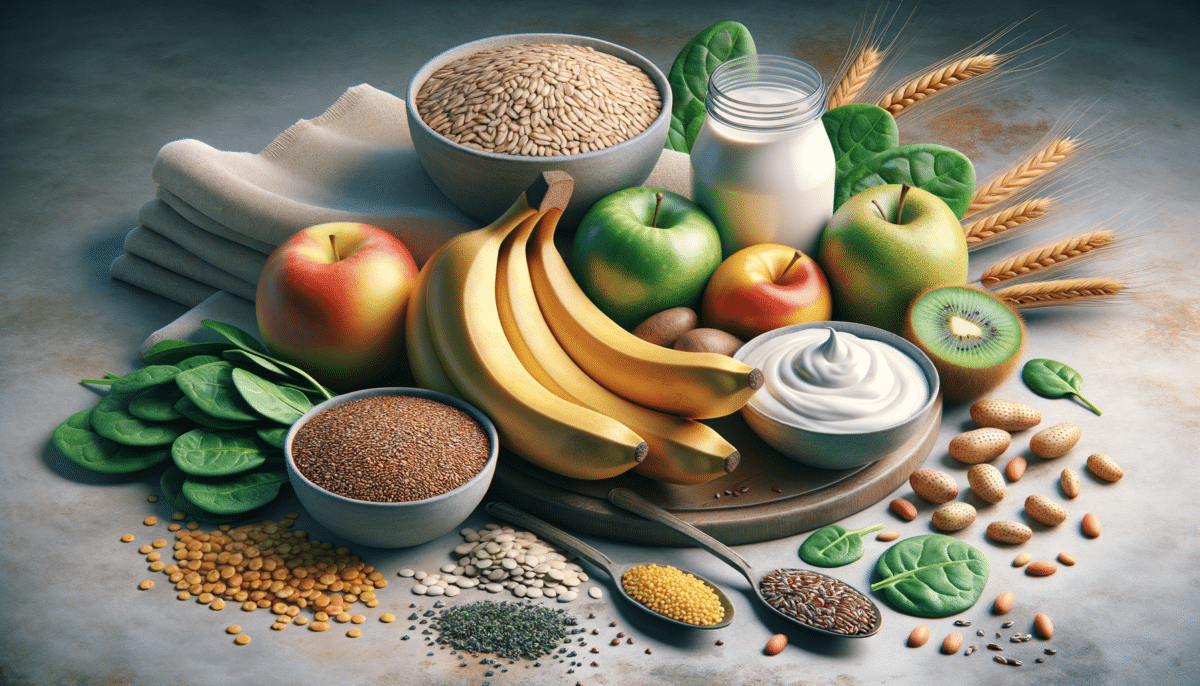The Importance of Gut Health
Gut health is a pivotal aspect of our overall well-being that often goes unnoticed. The gut, often referred to as the “second brain,” plays a crucial role in various bodily functions. It is responsible for breaking down food, absorbing nutrients, and eliminating waste. Moreover, the gut significantly influences our immune system, mental health, and even our skin condition. When the gut is in good health, it efficiently processes food and supports the body’s natural defenses. However, when it is out of balance, it can lead to a host of issues, including digestive disorders, weakened immunity, and mood swings.
Scientific studies have shown that a healthy gut microbiome, which consists of trillions of bacteria, fungi, and other microbes, is essential for maintaining overall health. These microorganisms help in digesting food, producing vitamins, and protecting against harmful pathogens. An imbalance in this microbiome can lead to conditions such as Irritable Bowel Syndrome (IBS), obesity, and even depression. Thus, maintaining gut health is not just about digestion; it’s about fostering a balanced ecosystem that supports the entire body.
Understanding the Gut-Brain Connection
The gut-brain connection is a fascinating field of study that highlights the intricate link between our digestive system and mental health. The gut and brain communicate through a complex network of neurons, hormones, and biochemical signaling pathways. This connection is often referred to as the “gut-brain axis,” and it plays a significant role in influencing our mood, stress levels, and cognitive function.
One of the key players in this connection is the vagus nerve, which runs from the brainstem to the abdomen. It acts as a communication highway, transmitting signals between the gut and brain. Additionally, the gut produces neurotransmitters such as serotonin, often dubbed the “happy hormone,” which regulates mood and well-being. In fact, approximately 90% of serotonin is produced in the gut, underscoring the importance of gut health in mental wellness.
Disruptions in the gut microbiome can negatively impact the gut-brain axis, leading to increased stress, anxiety, and depression. Therefore, nurturing a healthy gut can have profound effects on mental health, offering a natural way to enhance emotional well-being.
Factors Affecting Gut Health
Several factors can influence gut health, ranging from diet to lifestyle choices. Understanding these factors can help in making informed decisions to promote a healthy gut environment.
- Diet: A diet high in processed foods, sugars, and unhealthy fats can disrupt the gut microbiome. In contrast, a diet rich in fiber, fruits, vegetables, and fermented foods supports a healthy gut.
- Stress: Chronic stress can negatively impact gut health by altering gut motility and increasing inflammation. Stress management techniques such as meditation and yoga can help maintain gut balance.
- Antibiotics: While antibiotics are essential for treating infections, they can also disrupt the gut microbiome by killing beneficial bacteria. Probiotics and prebiotics can help restore balance after antibiotic use.
- Sleep: Poor sleep quality and irregular sleep patterns can affect gut health. Ensuring adequate and restful sleep is crucial for maintaining a healthy gut.
By addressing these factors, individuals can take proactive steps to nurture their gut health and improve overall well-being.
Dietary Choices for a Healthy Gut
What we eat plays a significant role in shaping the gut microbiome. Certain foods can promote the growth of beneficial bacteria, while others may hinder it. Here are some dietary choices that support gut health:
- Fermented Foods: Foods like yogurt, kefir, sauerkraut, and kimchi are rich in probiotics, which are beneficial bacteria that enhance gut health.
- High-Fiber Foods: Whole grains, legumes, fruits, and vegetables provide dietary fiber, which serves as food for gut bacteria, promoting their growth and diversity.
- Prebiotic Foods: Foods such as garlic, onions, bananas, and asparagus contain prebiotics, which are non-digestible fibers that fuel the growth of beneficial bacteria.
- Polyphenol-Rich Foods: Berries, green tea, and dark chocolate are rich in polyphenols, which have antioxidant properties and support a healthy gut microbiome.
Incorporating these foods into the diet can help maintain a balanced gut microbiome, leading to improved digestion and overall health.
Conclusion: Embrace a Gut-Healthy Lifestyle
Maintaining gut health is a journey that requires mindful choices and lifestyle adjustments. By understanding the importance of the gut, recognizing the factors that affect it, and making informed dietary choices, individuals can foster a thriving gut environment. This not only enhances digestive health but also supports mental well-being, immune function, and overall vitality.
Embrace a gut-healthy lifestyle by incorporating fermented foods, high-fiber options, and stress-reducing practices into your daily routine. By doing so, you can unlock the potential of your “second brain” and pave the way for a healthier, happier you.
